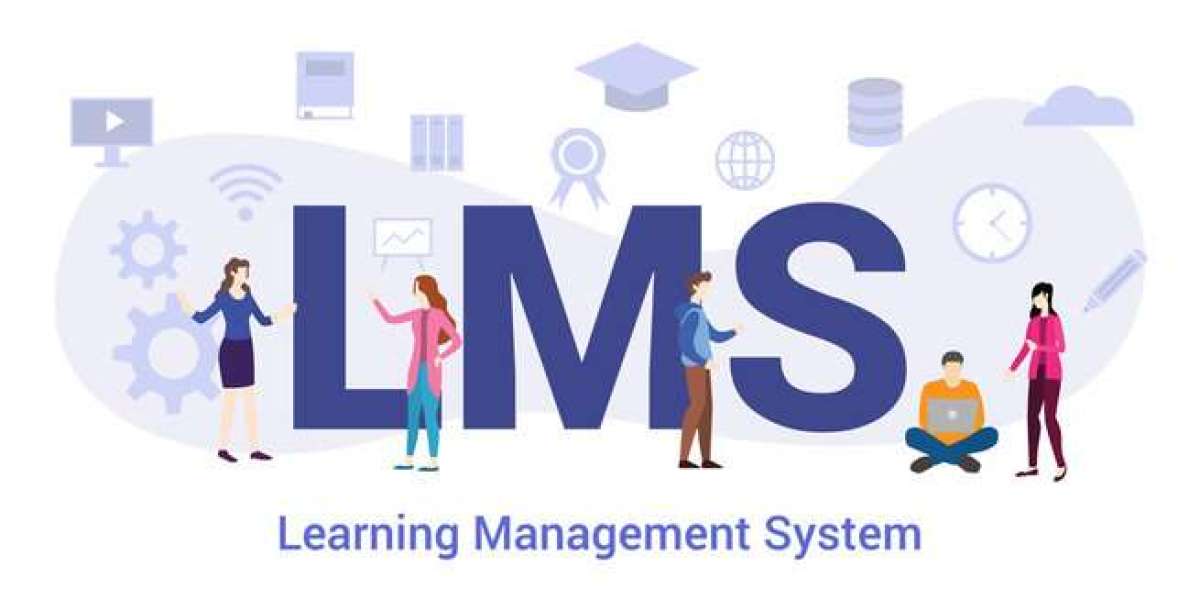In the digital era, education is no longer confined to the four walls of a classroom. The demand for flexible, scalable, and effective online learning solutions is skyrocketing. Whether you're a business looking to train employees or an educator delivering virtual classes, Learning Management Systems (LMS) are the backbone of your success.
But with so many options available, how do you choose the right one?
That’s exactly why we’ve created the Top 10 Best LMS Platforms for 2025: Ultimate Comparison Guide—to help you find a solution that fits your goals, budget, and user experience expectations.
What is an LMS and Why It Matters in 2025
An LMS (Learning Management System) is a software platform that helps organizations deliver, manage, and track learning experiences. In 2025, LMS platforms are no longer just about course uploads—they're integrated ecosystems for engagement, assessment, and analytics.
From corporate training programs to universities and even solo educators, the right LMS can improve learning outcomes, save time, and cut costs. The eLearning industry is evolving rapidly, and staying ahead means choosing tools that support modern learning needs—mobile access, AI-driven personalization, and seamless integrations.
Key Features to Look for in a Modern LMS
Before diving into our top picks, here are the features you should prioritize:
User-Friendly Interface
Mobile Compatibility
Scalability
Customization Options
Analytics and Reporting
Gamification Tools
Integration with Other Tools (Zoom, Google Workspace, etc.)
Support for Multiple Content Formats (video, SCORM, quizzes)
Security and Compliance (GDPR, FERPA)
Top 10 Best LMS Platforms for 2025: Ultimate Comparison Guide
Let’s break down the leaders in the LMS market in terms of functionality, user experience, and value for money.
1. Moodle
Best for: Schools, universities, and nonprofits
Moodle is a popular open-source LMS known for its flexibility and extensive community support. It’s highly customizable and perfect for institutions looking to tailor the platform to specific learning needs.
Pros:
Free and open-source
Huge plugin ecosystem
Strong community support
Cons:
Requires technical knowledge
Interface can feel dated
2. TalentLMS
Best for: Small to mid-sized businesses
TalentLMS is easy to set up, offers clean UX, and provides essential features for onboarding and training. It’s cloud-based and scalable, ideal for growing teams.
Pros:
Quick setup
Affordable pricing
Built-in course marketplace
Cons:
Limited customization
Not suitable for complex training needs
3. Docebo
Best for: Enterprises
Docebo offers powerful AI-driven learning paths and extensive integrations. Its modern UI and advanced reporting tools make it perfect for large companies.
Pros:
AI features for personalized learning
Excellent analytics
Seamless integration options
Cons:
Higher pricing
Can be complex to set up
4. Canvas LMS
Best for: Higher education
Canvas is a cloud-native platform with an intuitive design and strong support for multimedia content. It's used by many universities worldwide.
Pros:
Simple UI
Great for collaboration
Strong mobile experience
Cons:
Pricing varies
Advanced features may require training
5. LearnWorlds
Best for: Course creators and entrepreneurs
LearnWorlds is packed with marketing tools and interactive video capabilities. If you're selling online courses, this is a strong contender.
Pros:
Built-in sales tools
Custom-branded websites
Advanced interactivity
Cons:
More expensive than competitors
Learning curve for new users
6. Litmos
Best for: Corporate training
SAP Litmos delivers quick, mobile-first training solutions. Its strength lies in its content library and integration with enterprise tools.
Pros:
Huge course library
Strong mobile learning features
Good security protocols
Cons:
UI could be more intuitive
Pricing not transparent
7. Thinkific
Best for: Solopreneurs and educators
Thinkific lets you easily create and sell online courses without coding. It’s ideal for coaches, consultants, and educators building a personal brand.
Pros:
No transaction fees
Drag-and-drop course builder
Free plan available
Cons:
Limited marketing automation
Add-ons can get pricey
8. Blackboard Learn
Best for: Academic institutions
Blackboard has been a long-time player in the educational tech space. It offers robust tools for institutions but requires a bit of a learning curve.
Pros:
Comprehensive academic features
Secure and scalable
Strong accessibility compliance
Cons:
Can feel clunky
Expensive for smaller schools
9. iSpring Learn
Best for: Fast onboarding
iSpring Learn is a user-friendly LMS known for speed and simplicity. It’s great for companies that need to get employees trained quickly.
Pros:
Easy setup
Excellent support
Native authoring tool
Cons:
Limited customization
Not ideal for advanced eLearning strategies
10. Teachable
Best for: Creators monetizing content
Teachable provides everything a solo creator needs to build, market, and sell courses. It includes payment gateways and email marketing tools.
Pros:
Built-in ecommerce features
Easy to use
Supports multiple instructors
Cons:
Limited design flexibility
Transaction fees on lower plans
Comparison Table Overview
| Platform | Best For | Free Plan | Mobile Support | Customizable | AI Features |
|---|---|---|---|---|---|
| Moodle | Schools & Nonprofits | ✔️ | ✔️ | ✔️ | ❌ |
| TalentLMS | SMBs | ✔️ | ✔️ | ❌ | ❌ |
| Docebo | Enterprises | ❌ | ✔️ | ✔️ | ✔️ |
| Canvas LMS | Higher Ed | ❌ | ✔️ | ✔️ | ❌ |
| LearnWorlds | Course Creators | ❌ | ✔️ | ✔️ | ✔️ |
| Litmos | Corporates | ❌ | ✔️ | ❌ | ✔️ |
| Thinkific | Solopreneurs | ✔️ | ✔️ | ❌ | ❌ |
| Blackboard Learn | Universities | ❌ | ✔️ | ✔️ | ❌ |
| iSpring Learn | Quick Training | ❌ | ✔️ | ❌ | ❌ |
| Teachable | Content Creators | ✔️ | ✔️ | ❌ | ❌ |
Conclusion
The Top 10 Best LMS Platforms for 2025: Ultimate Comparison Guide makes one thing clear: there’s no one-size-fits-all LMS. Your perfect platform depends on your needs—whether it's employee onboarding, online teaching, or building a course empire from scratch.
As online education continues to boom, investing in the right LMS will not only improve learning outcomes but also streamline operations and reduce costs.







